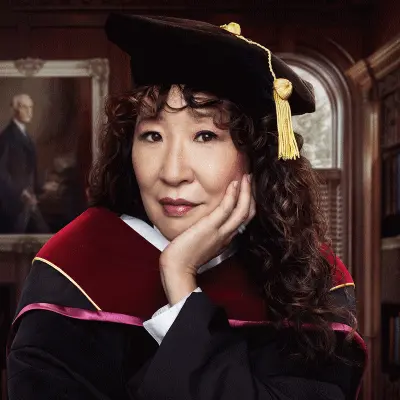The Chair offers one of the most insightful portrayals of campus culture, revealing that "chairing is parenting by other means"
-

"As it unfolds, The Chair offers far deeper insight into the interpersonal and intergenerational dynamics of campus culture than any novel I’ve read," says Kevin Dettmar. "The show’s dramatic energies are focused on issues of free speech, the changing paradigms of scholarship and teaching, and the prejudice that women faculty and faculty of color face. Yet the subject that gets the most screen time is none of these, nor is it chairing. It’s parenting—although as the series rolls on, we slowly realize that, just possibly, chairing is parenting by other means." He adds: "Much has been written already by academics keeping score of the show’s little missteps. Its creative team, which includes writers with graduate degrees in English, certainly understands the students’ perspective. But it sometimes doesn’t grasp the faculty’s side of the operation as well. Thus the show repeats a telling mistake: Ji-Yoon’s appointment as chair is frequently referred to as a 'promotion,' and it’s not. Moving from assistant to associate professor, and from associate to full—those are promotions. Being appointed to a named or endowed chair, though not quite a promotion, usually marks the pinnacle of a scholarly career. But agreeing to take on the task of chairing a department is different—it is an administrative assignment, and typically not a coveted one." ALSO: The Chair finds in the deterioration of the humanities an echo of a deeper existential crisis.
More The Chair on Primetimer:- Sandra Oh on The Chair's future: “No one’s called me, so I’m guessing that’s not happening"
- The Chair worked overtime to make Jay Duplass' character a victim and the show's main focus, despite having Sandra Oh as star
- Ranking every chair on The Chair
- The Chair is a fun workplace dramedy, but it's not a satire of people in power
